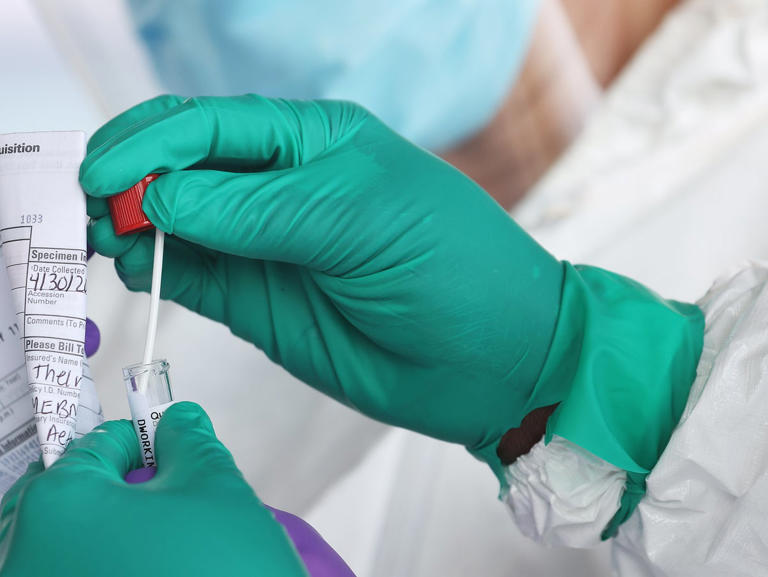After contacting a renowned scientist to discuss her fatigue concerns, a breast cancer survivor may have inadvertently furthered long Covid research.

Amanda Twinam A Breast Cancer Survivor (Photo: The Washington Post)
The Breast Cancer Survivor, Named Amanda Twinam Never Had A Satisfactory Explanation For Why She Felt The Way She Did
According to the report of The Independent, after receiving two separate breast cancer diagnoses as an adult and being suspected of having mononucleosis in high school, the breast cancer survivor, named Amanda Twinam spent years trying to figure out why she had low energy levels. However, she feels she is finally getting closer to a solution after getting in touch with a researcher at the National Institutes of Health (NIH), who subsequently studied her and her family.
Chemotherapy and a mastectomy were part of her treatment when she was first diagnosed with breast cancer at the age of 28. She went to a rheumatologist since her medication was making her sick and causing seizures, and he eventually found a marker in her blood that indicated an autoimmune disease.
In 2015, Doctors diagnosed the breast cancer survivor, Amanda Twinam at the age of 44 with a genetic cancer disorder called Li-Fraumeni syndrome. She underwent another mastectomy after being diagnosed with breast cancer for the 2nd time.
The breast cancer survivor, named Amanda Twinam never had a satisfactory explanation for why she felt the way she did despite years of crippling symptoms, medical visits, and diagnoses. She stated that her main complaint, and occasionally only complaint, was fatigue. However, nobody knew what to do.
READ ALSO: Suspects Arrested After 1-Year-Old Boy And Three Others Injured Due To Alleged Fentanyl Exposure At The Bronx Daycare Center
Breast Cancer Survivor, Amanda Twinam Finally Had A Name For The Condition That Was Causing Her Fatigue
According to MSN, while reading new medical studies on Li-Fraumeni syndrome written by NIH researcher Dr. Paul Hwang, the breast cancer survivor, Amanda Twinam discovered something interesting years after she first started experiencing symptoms. She postulated that the specific form of Li-Fraumeni syndrome she experienced might be caused by issues with her cells’ mitochondria. She specifically questioned whether they might be depriving her of enough energy.
She wrote Dr. Hwang an email that started, “I read with interest your recent article on inhibiting mitochondrial respiration in a mouse model of Li-Fraumeni Syndrome,” but Twinam claimed she didn’t even know if he would reply. She said, “I had no expectations.” “I’m sending this fancy science researcher an email, who isn’t going to give me the time of day.”
Dr. Hwang did reply and made the supposition that she might be correct. Dr. Hwang replied, “Yes, I agree with you, it is possible that you are right.
After further investigation, they found that Twinam’s body appeared to be creating more WASF3 than usual. They found that this protein was impeding the process through which her body was attempting to manufacture energy.
Dr. Hwang discovered that many people with this particular problem had a syndrome known as myalgic encephalomyelitis, or ME/CFS when he broadened the number of people he was studying. The disorder was subsequently identified as being the cause of Twinam’s exhaustion, and she finally had a name for the condition that was causing her fatigue.
Given that there is limited research on ME/CFS, experts think Dr. Hwang’s study on Twinam’s condition, which was published in the journal PNAS in August, is important. Since ME/CFS and long-term COVID have been connected, it is especially pertinent at this time.

















































